Homeowners’ associations are a necessity in today’s world of residential development. Whether it’s a condominium or single family development, any new community that has a common area, including signage easements, greenbelts, perimeter fencing, is subject to the uniform Common Interest Ownership Act requiring a public offering statement be given to each and every buyer. And every common ownership community must have an association that consists of a board of directors which oversees the enforcement of the covenants, codes and restrictions for the community. Without an association there is no opportunity for enforcement of the CCRs. The MOA code enforcement division does not enforce the HOA rules and regulations, only MOA requirements such as air or water pollution, fences and signs that violate sight distances, junk vehicles, land use and zoning, noise and unsafe buildings.
Required by state law, the minimum number of board members in an association is three and there is no maximum members. Their powers are extensive, including the ability to adopt and amend bylaws’ rules and regulations and establish fines for those homeowners who are not compliant with the regulations. Most associations create a fine policy with several levels of infractions. Long-term violations such as landscaping, improper fencing, decks that are not immediately correctable are given a longer period of time to comply, normally 30 days. Short term violations such as materials stored in the front yard, improper placement of a satellite dish, sheds built without approval are given seven days to correct, depending on the association. Repeated violations, such as a boat parked long term in the driveway during the summer, would have an automatic fine assessed to the homeowner.
The state law requires a notice and hearing prior to a fine being assessed to a homeowner’s account and the amount would appear on their quarterly or monthly dues statement. Many homeowners are unaware of their rights to a hearing and so it is important for the homeowner to request a hearing in writing to the board. If the board assesses a fine after the hearing and the homeowner does not pay, the board has the right to lien the property, which would make the amount due and payable upon any sale. Only the board can lien a property. An adjacent property owner, regardless of how egregious the circumstances, does not have the right to lien a neighbor’s property.
An active HOA can add value to a community by keeping common area landscaping well maintained and junk cars, et cetera, out of eye sight. However, a fractious, overly aggressive HOA can likewise deter prospective buyers from purchasing in the community. Fair and balanced is the best course of action.

 Connie Yoshimura is the Owner and Broker of Berkshire Hathaway HomeServices Alaska Realty. With over 40 years of residential real estate experience, she continues to be a leader in Alaska’s housing market. Most recently, she sold the highest-priced home ever recorded in the Alaska MLS.
Connie Yoshimura is the Owner and Broker of Berkshire Hathaway HomeServices Alaska Realty. With over 40 years of residential real estate experience, she continues to be a leader in Alaska’s housing market. Most recently, she sold the highest-priced home ever recorded in the Alaska MLS.
Leave a Reply